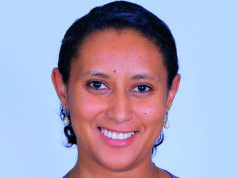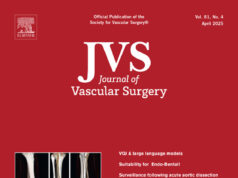 Besides the stunning death toll and the disruption of life around the world, COVID-19 hit vascular surgeons financially and emotionally. Two presenters at the Vascular Annual Meeting (VAM) special session on COVID-19 on Wednesday afternoon discussed these impacts.
Besides the stunning death toll and the disruption of life around the world, COVID-19 hit vascular surgeons financially and emotionally. Two presenters at the Vascular Annual Meeting (VAM) special session on COVID-19 on Wednesday afternoon discussed these impacts.
It may take years to recover the losses, if ever, said Francesco A. Aiello, MD, MBA, associate professor of surgery at the University of Massachusetts Medical School in Worcester, Massachusetts, in presenting “Quantifying the financial impact of COVID on vascular surgery practices: How to recover?”
Ninety-seven percent of practices experienced a negative financial impact, he said, and 90% of vascular surgeons experienced cancellation of elective surgeries. Fifty to 80% of outpatient facilities were closed or significantly limited. Government funding has been essential, he said, but little is going directly to physicians, with most going to systems.
Medical center reimbursements decreased 47% and in terms of professional productivity, work Relative Value Unites decreased 51% and reimbursement decreased 54%.
Time to recoup losses from the pandemics for medical center reimbursement ranged from nine to 31 months, and for professional reimbursement from 11 to 36 months, depending on the percentage of increase to be attained above the pre-pandemic levels.
What to do? Adapt to the current and the changing environment, he said. Prepare for rapid changes, take advantage of technology, such as telehealth, optimize coding and consider alternative revenue streams. Surgeons could increase their volume of cases, working on evenings and weekends. That, however, could lead to increased burnout, and the SVS Burnout Report suggests this is not a viable option, said Aiello.
In terms of new service sites such as ambulatory centers or outpatient centers, or clinics, starting small and seeing what happens “is a very viable option.” Ignore the naysayers; in actuality, such centers are profitable for a professional and medical system and results in increased patient and clinical satisfaction, he said. Telehealth, too, with “gross liberalization of telehealth codes and increased reimbursements,” can help bottom lines.
Max Wohlauer, MD, a member of the SVS Physician Wellness Task Force, said surgeons faced several issues that impacted wellness, including the expectation that “surgeons are expected to be on top of things at all time.” Other professional stressors included occupational hazards, particularly early on; worry over patient outcomes; lack of proper personal protection equipment; worry over colleagues becoming infected, information overload and a world vastly unprepared for the pandemic. All took their toll on vascular surgeons, he said.
Personal stress impacted vascular surgeons as well, including worry over family and friends becoming infected, extra childcare responsibilities, increased house-cleaning and wiping down the home, empty grocery store shelves and working from home.
All take their toll, he said, leading to “moral injury, the strong cognitive and emotional response that can occur following events that violate a person’s moral or ethical codes. When you can’t deliver the care that you think the patient should have, when care is delayed, when you have inadequate PPE, this can lead to shame and guilt, alterations in cognitions and beliefs and maladaptive responses,” he said.
Surgeons resorted to both active and avoidant coping strategies. Positive reframing, planning and acceptance were the most-used active strategies, while self-distraction was by far the most avoidant coping strategy at 60%.
How to stay healthy during the pandemic? Amidst the current surge, vaccine hesitancy and other factors that add to compassion fatigue, Wohlauer recommended surgeons:
- Ensure adequate personal protective measures
- Retreat into a private space for a moment to gather your thoughts
- Practice mindfulness
- Speak to a close friend(s)
- Ensure adequate nutrition, sleep and exercise
- Pray per faith/belief
- Engage in activities that make you happy, such as yoga, dancing or music
He added, “One thing about the pandemic, it’s the great leveler. You’re not alone. What you’re experiencing, someone else is, too.”











